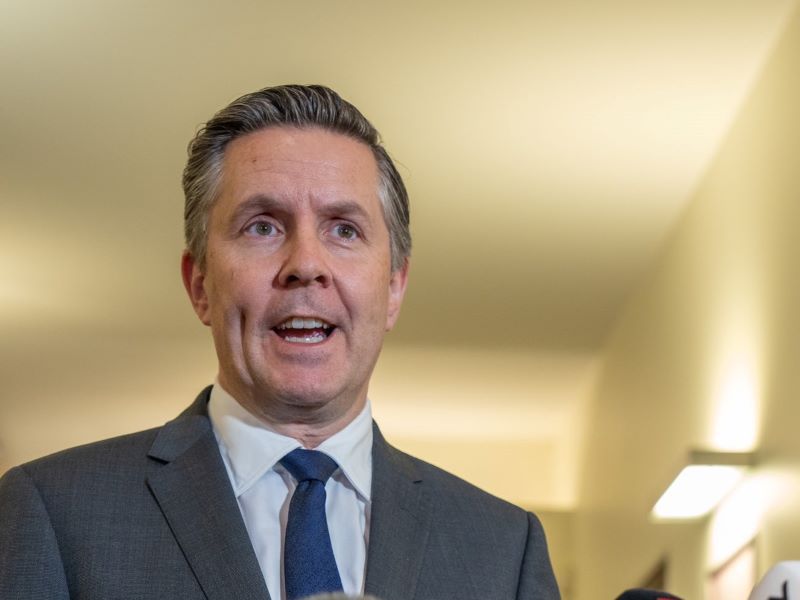My Health Record looks set to be overhauled, with an expert taskforce finding not enough health information is being shared between patients, practitioners and services, despite nearly $900 million being poured into the platform since 2017.
The taskforce has recommended the patient health data sharing scheme be modernised as part of a data and digital uplift across the primary health sector.
The Albanese government will wait for its May budget to provide details but has acknowledged the need to “rebuild” the information sharing platform after very low uptake by some parts of the health sector.

Health Minister Mark Butler released the report from the Strengthening Medicare Taskforce that spent the last six months examining problems in Australia’s primary care system, finding a need to “modernise” the seven-year-old platform.
Mr Butler said if My Health Record (MHR) is to be centrepiece of an effective digital health system it will need functionality upgrades and more uptake.
“Currently, it’s a pretty outdated, clunky, pdf format system that needs to be able to underpin a real-time, fully-integrated digital health system,” he said on Friday.
“So we recognise that the Commonwealth has the first responsibility to move here and to upgrade the nature of the My Health Record. But we also need other health professionals to connect to it.”
Despite having existed in some form since 2012 and controversially switching to an opt out model in 2019, use of the platform is patchy.
“General practitioners, pharmacies, are very good at [connecting to MHR],” Mr Butler said. “About 99 per cent of them or more are connected to MHR and upload to it regularly.
“Only 11 per cent of specialists do. Only about 20 per cent of diagnostic imaging – so X-rays and CT scans – are uploaded to MHR.
“So, time and time again, a patient goes to their doctor, talks about their conditions, and their tests are not available for the GP to look at and use as part of their diagnosis and treatment decisions. We’ve got to do better there.”
MHR was one of the unfunded or only partially funded programs that added to the pressures of the Albanese government’s first budget in October.
The former government adopted a two-year funding cycle for the My Health Record in 2017, having previously funded the system on a three or four-year basis, except for in 2014.
In 2017, the My Health Record received $374.2 million over two years – funding used to bankroll the controversial switch from opt-in to opt-out – followed by a further $200 million in 2019-20 and $301.8 million in 2021.
MHR funding is set to expire at the end of this financial year, with a significant program of work continuing to modernise My Health Record’s underpinning platform still underway.
Mr Butler has acknowledged the overhaul will require significant long-term funding.
“Some of the digital health recommendations that I think are utterly critical, they’re not going to be able to be delivered in the first week of July, and they’re going to take a significant period of time to rebuild the My Health Record [to] make it into a genuinely 2020 system that has the ability to underpin real-time integration and interface between patients and healthcare providers,” he said.
“But we will be responding to that because we know this is urgent. That’s why we put this utterly at the centre of our healthcare policy at the last election.”
Labor pledged to establish the Strengthening Medicare Taskforce to help it decide how to allocate an election commitment of an extra $250 million a year to improve general practice outcomes and decrease the pressure on hospitals.
Along with the MHR overhaul, the taskforce also recommended a modernisation of digital systems generally.
This should include an uplift in primary care IT infrastructure and an investment in health data to support patient outcomes and better research to support health system planning, the taskforce recommended.
It called for “robust national governance and legislative frameworks, regulation of clinical software” and ensuring patients can give informed consent and withdraw it for data sharing.







